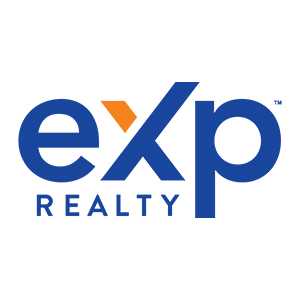Best Online Real Estate Brokerages for Agents in 2023
Location. Location. Location.
Even with the work-for-home trend sweeping white-collar work in post-COVID America, the real estate industry is still very much a location-based business.
If you don’t believe it, try doing real estate in Butte, MT while living in Newark, NJ.
There may be a future where remote work is possible in our industry, with self-tour technology, 3D walkthroughs, and remote closings. But I doubt it. And certainly not in the foreseeable future.
But just because you are local doesn’t mean your broker has to be. Or, even if they are nearby, it doesn’t mean you need to show up at a stodgy fluorescent office to get your work done.
More and more real estate companies are giving the online, cloud-based brokerage model a chance.
The virtual model is appealing to a brokerage firm because it is much easier to scale and without the overhead of office rents. The cost savings allows brokers to offer better commissions and attract more and better agents.
List of Virtual Real Estate Brokerages

Fathom Realty
Fathom Realty doesn’t explicitly hold itself up as a virtual brokerage. Rather, it puts first and foremost its flat-fee commission splits. But it has embraced much of the virtual office ethos. It could be a strong contender for an agent interested in keeping their commission in a brokerage that works with the idea of self-directed remote work.
- Located in AL, AZ, AR, CA, CO, FL, GA, HI, ID IL, IN, IA, KY, LA, MD, MA, MI, MN, MO, MT, NV, NH, NJ, NM, NC, OH, OK, OR, SC, TN, TX, UT, VA, WA, WV, WI, DC

eXp Realty
eXp Realty is the quintessential virtual brokerage, one of the four largest and fastest-growing brokerages in America. eXp has in many ways defined the category of virtual brokerage. It is famous for eXp World, a virtual video-game-like workplace that agents can utilize to collaborate and use brokerage resources. They offer attractive commission split and shareholder opportunities.
- Located in all 50 states

Real
Real is a hip brokerage that emphasizes its technology offerings, which is a consistent theme for a virtual brokerage that will inherently rely heavily on technology! They also have a commercial division.
- Located in AK, CA, CO, CT, DC, FL, GA, HI, IL, KS, LA, MD, MA, MO, NJ, NY, NC, OH, OK, PA, RI, SC, TN, TX, UT, VA, WA, WI

Side
Side might bristle at being lumped in as a “virtual brokerage”. But the model is effectively that of a virtual brokerage. Side takes a complete back seat to the agent, working with agents to build their own brand entirely. Side serves almost as a third-party brokerage service, not a traditional brokerage. This is ideal for experienced agents who want to own their business but without the typical headaches of running a brokerage.
- Located in AZ, CA, CO, FL, GA KY, MD, MA, NY, NC, OH, OR, SC, TX, VA, WA, DC
Local Virtual Brokerages
The Virtual brokerage model is catching on and more are trying their hands at it. It may be worth Googling around your area for virtual brokerages that are local to your state. Some examples of local brokerages include:
- All City Real Estate
- Ashby and Graff Real Estate
- Central Metro Realty
- KeepYourCommission.com
- Premier Realty Associates
- The Virtual Realty Group
- VORO Pro
eXp – First to the Metaverse
Before Mark Zuckerberg had ever even heard the word “Metaverse”, eXp was already living in one.
And making money doing it!
eXp has innovated the virtual category with eXp World, an online hub like the Sims or Roblox where agents can attend a virtual office and get their brokerage needs met.
It has definitely set a standard for what it means to be a virtual brokerage.
Pros and Cons of Joining a Virtual Brokerage
Pros
- Better commission splits. A virtual brokerage doesn’t inherently mean the commission split will be better. But the cost savings a broker gets from ditching office rent often comes back to agents. Fathom Realty is a 100% commission brokerage model, for example.
- Greater geographic coverage. If limited to traditional models, an agent’s options are reduced to those operating in their market. Virtual brokerages give agents in remote areas more options of brokerages to choose from. They also give you the opportunity to cast a wide net if you have a large service area.
- Convenience. A busy agent may not appreciate driving across town for a mandatory brokerage meeting once a week. In the digital age, taking care of these on Zoom without leaving your home can be much easier to fit into a busy schedule.
- Not that virtual. Most virtual brokerages have physical offices somewhere. Fathom Realty has offices in its major locations. Many individual agents at virtual brokerages own offices that often serve as hubs for the brokerage. And these brokerages often sponsor events or meetups at the state and local conventions so that agents and brokers can get actual face time.
Cons
- Difficult to maintain personal accountability. A good broker can have a very robust, virtual agent accountability program, but it will likely still be inferior to the kind of accountability one can achieve from in-person interaction. If you are the type who struggles to stay on task without supervision or prefers the office environment, clearly a virtual brokerage will have its drawbacks.
- Challenging for newer agents. New agents face a steep learning curve, and being cloistered away from the office may not be the best environment to start your career. A brick-and-mortar office offers more opportunities to model good habits and observe what other successful agents in the brokerage are accomplishing. I’d wager that the virtual model is most attractive to agents with at least a little bit of experience and success and who are ready to carry good habits into a better commission model and flexible environment.
- No hub for meeting customers. If you aren’t setting up an office or coworking space for yourself or a team, it is nice to have a physical brokerage office with conference rooms to meet with clients. Otherwise, you may find you are scheduling clients at coffee houses, which may lack the professional aura you wish to convey. It’s also extremely useful to have a physical address with a receptionist to direct other agents to for dropping off earnest money, closing checks, or even simple tasks like setting up a Google My Business account.
- Less social. Most agents are highly social creatures. If you are going virtual, be sure to find ways to make up for the lack of interpersonal connection by meeting weekly with coworkers in your town for accountability meetings or just to share stories and decompress.
Conclusion
Though there are only a few major brokerages that fully embrace the online brokerage business model, it is a rapidly growing category that makes a lot of sense as the median real estate agent becomes tech-savvier. It is often a win-win for both real estate brokers and agents.
My one caution would be for newer agents who haven’t had the chance to observe a successful agent in the office yet. If you are going virtual, be sure you are getting exposure to top agents and brokers in some other way.
Updated March 13, 2023; Originally published April 27, 2021


